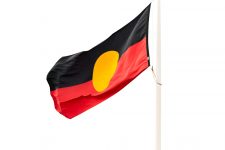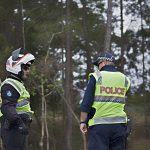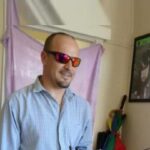Indigenous Man Dies After Being Restrained by NSW Prison Guards

On December 29 last year, David Dungay, an Indigenous man from Kempsey in NSW, died in custody at Sydney’s Long Bay Correctional Complex in Matraville. The 26-year-old Dunghutti man was eating biscuits in the prison’s mental health unit, when he was order to stop by guards.
Dungay is said to have become increasingly aggressive over the directive and refused to stop eating. Corrective Services staff called in several officers from the Corrective Services Immediate Action Team, so they could move him into a cell where he could be monitored by a CCTV camera.
As officers attempted to move Dungay, he told them he couldn’t breathe. The officers responded that if he could talk, then he was breathing. After being escorted into the cell, he was held face down on a mattress.
Dungay was then injected with midazolam, a strong sedative, and soon afterwards turned purple and stopped breathing.
NSW Health Department report
A copy of a NSW Health Department report obtained by the ABC last week revealed a number of issues over prison staff’s treatment of Dungay at the time of his death.
Health staff did not assess Dungay’s vital signs or check his airwaves before administering the sedative. There was no resuscitation equipment or antidote to the treatment present at the scene. And only two of the four health staff involved documented their role in the health records.
The report calls for the subordinate role of health staff to Corrective Services staff to be investigated.
Reaction of mother and her lawyer
Leetona Dungay, David’s mother, said her son was murdered. She explained that David would have been eating the biscuits because he was a diabetic and treating his illness.
Lawyer George Newhouse is representing the family. He said the case raises a number of issues that need to be addressed at a forthcoming inquest by the NSW Coroner.
Newhouse highlights the fact that Aboriginal people have high rates of diabetes, but management of the condition “in the prison system seems to be problematic.” He said the case further raises questions over the “critical issue” of the treatment of Indigenous people in prisons, and their health needs.
Dungay, who was serving an eight-year prison sentence, was due to be released on parole within weeks. He was being treated in Long Bay’s mental health unit for chronic schizophrenia. An initial statement from Corrective Services NSW said police weren’t treating the death as suspicious.
Murri activist Ken Canning on the incident
Chairman of the Indigenous Social Justice Association and Murri activist, Ken Canning, organised a demonstration outside Long Bay prison on Saturday protesting the silence surrounding Dungay’s death. The gathering was attended by the deceased’s family.
“There still hasn’t been an autopsy. No questions about his death have ever been answered. This is a long time for a grieving family to wait.” Canning told Sydney Criminal Lawyers®. “Corrective Services have gone into lockdown mode, not of their inmates but of their information.”
In NSW, there’s been two Aboriginal deaths in custody over the last ten months. Rebecca Maher died while in police custody at Maitland Police Station on July 19 this year. Canning said the deaths don’t shock him, because Aboriginal deaths in custody keep occurring, but he described the incidents as “disgusting.”
Canning said that at the time of the 1991 Royal Commission into Aboriginal Deaths in Custody, there were an average of six Indigenous deaths in custody a year Australia-wide, but “now it’s up to eleven on average.” In 2013, the official figure for Indigenous deaths in prison and police custody since the Royal Commission was put at 365.
The Commission made 339 recommendations, most of which have not been put into effect. “If the recommendations were implemented, these recent deaths, both would have been alive,” Canning said. He added that in the case of Rebecca Maher, police failed to contact the Custody Notification Service (CNS), which is a requirement under NSW law.
The CNS is one of the few Royal Commission recommendations that were actually implemented. It requires police to contact the Aboriginal Legal Service (ALS) as soon as they have detained an Indigenous person. The ALS then provides legal advice and support to the person being detained.
Rebecca Maher’s death in custody
Ms Maher’s case was the first Aboriginal death in police custody in NSW since the CNS was established in 2000. The 36-year-old Wiradjuri woman was taken into custody by NSW police after passing motorists reported seeing her in a highly agitated state on the side of Wollombi Road in Cessnock. She was found dead five hours after being placed in a police holding cell.
Last week, Ms Maher’s mother Debbie told the ABC that they’ve seen a report that confirms her daughter had no drugs or alcohol in her system. Debbie wants to know what kind of medical attention, if any, her daughter was given before she was found dead. She was initially told her daughter hadn’t been assessed and police haven’t said how regularly she was checked in her cell.
“When you look at the Rebecca Maher case, she wasn’t arrested, there were no drugs or alcohol involved and yet she ends up in a cell and ends up dead,” Canning said.
The ALS has called for an independent investigation into the death of Rebecca Maher, asserting she could have been saved if police had followed the correct protocol.
Indigenous deaths in custody nationwide
Meanwhile, Indigenous deaths in custody continue around the country. On August 25 this year, a 31-year-old Indigenous man was found dead in his cell at the Darwin Correctional Centre. Initial reports said there was no evidence of foul play, and the man probably took his own life.
While Kumanjayi Langdon, a 59-year-old Warlpiri man, died of natural causes in Darwin Police Watch House on May 21 last year. He was arrested under the controversial NT paperless arrests, which allow for a person to be arrested without warrant and detained for four hours.
The date of David Dungay’s inquest is yet to be set, but it is not expected to happen for at least another year.







